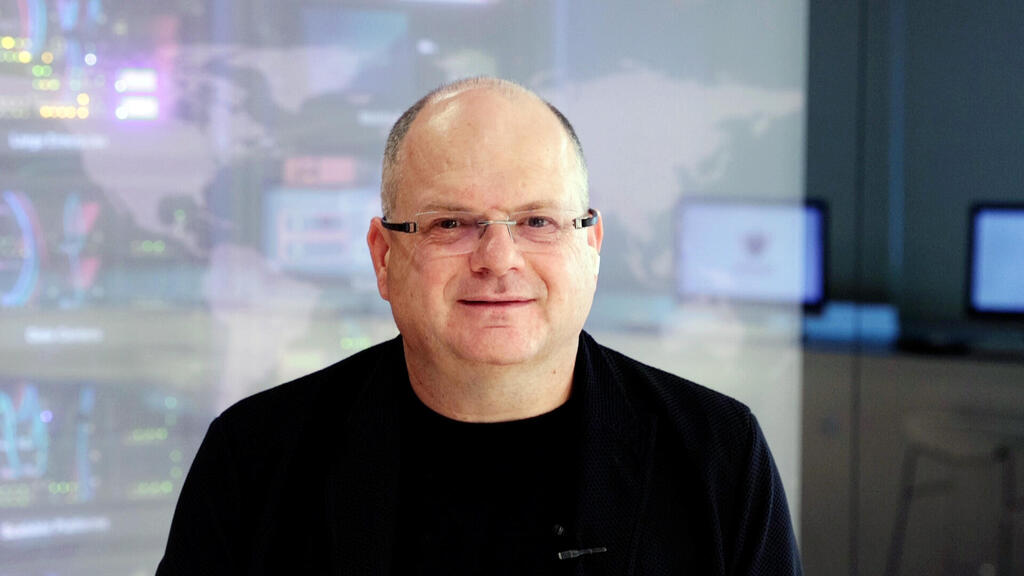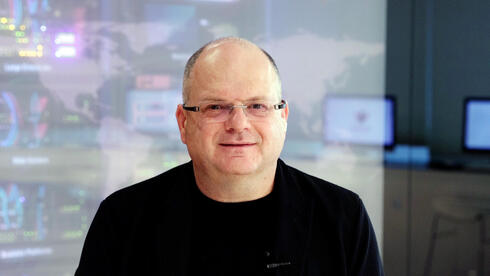
"We are in the midst of a crisis, but the need for more technology is great, so the technology market will grow"
Check Point founder and CEO Gil Shwed explained during the Hi-Tech Effect series by Calcalist and Mobileye his insistence on staying in Israel and why the high-tech crisis should have been expected
Check Point, which has become synonymous with Israeli high-tech and its success, will celebrate its 30th anniversary next year. "When we started we had to reinvent almost everything, to learn and discover," said Gil Shwed, CEO and co-founder of the company, in a conversation with Sophie Shulman that took place as part of Calcalist and Mobileye’s The Hi-Tech Effect series. "Today there is a wealth of expertise, and above all knowledge, of almost everything. The world has developed and Israel today has one of the best and most developed ecosystems in the world."
Despite the temptations and attempts at persuasion over the years to move to the U.S., Shwed remains in Israel. "I strongly believe in living here. I love the country and high-tech allows us both to be here with the people we love and to be part of the global market. When you move from country to country, you lose the home-field advantage - getting to know people, recruiting employees, the ability to solve problems in a way you know. There are many difficulties in getting acclimated and absorbed in a foreign country, so I'm not sure the balance is positive."
Today there are more than 100 Israeli companies trading on Wall Street, and dozens of them are already worth over a billion dollars. When there are many veteran companies that reward their employees well, is there still motivation here to establish startups?
"The motivation is huge. The model that the big companies are showing the young entrepreneurs attracts many more people to start a startup and be the next big thing. We are completely a 'scale-up nation' today. Five years ago there were few big companies, Check Point was one of the few with revenues of over a billion dollars, and today there is a group of 5-10 such companies, and it's a pleasure to see it."
If you look at the number of employees, is there a glass ceiling for Israeli high-tech?
"Of course. The limit of how many tech people can be trained in Israel is our bottleneck, and it depends on the education system and the investment in it. Is it 10%? 15%? I definitely think we can reach these numbers and even more. The global high-tech market has a thirst for very good people. Hundreds of thousands of workers in Israel in high-tech are like one company in India. So we are not the Indian model of outsourcing and we have not been a low-cost country for a long time - we are considered one of the most expensive countries in the world today. But there is definitely talent here that can support many more companies."
We are in a time of crisis and the reactions to layoffs in companies are often met with unbridled joy. Mixed feelings have developed towards Israeli high-tech because it has distanced itself from the general public. Do you recognize that?
"Only to a certain extent. My employees and I receive a lot of praise. The dream of being in high-tech belongs to everyone, and high-tech reaches everywhere. The Corona revolution has brought the periphery even closer to the center, because today you can live anywhere and work in high-tech. High-tech belongs to everyone, there are developer jobs that require a lot of technological training alongside many other jobs in the fields of marketing and operations and other fields that support high-tech."
Do you feel that there is some kind of jealousy because there are like two separate economies here?
"I feel that there is more of a coming together. When I was looking for good people 30 years ago, it was very difficult to find them in the traditional industries, because those were two different worlds. Today there is no problem with the transition and I recruit people who work in the traditional industries and sometimes people leave us in favor of such companies. A very high level work culture has been created in Israel, and in most cases high-tech pulled the standards of the market up."
Related articles:
You experienced the dot.com crisis. Today many young entrepreneurs are asking themselves if we are on the way to a similar crisis.
"We are in the midst of a crisis and in the midst of a bubble. This is not a bubble that bursts all at once. Some of the public companies that issued crashed. It is more difficult for startup companies to raise money. This crisis happens in stages and that is good, but it is not new. It is a cycle that always happens. Successful markets attract a lot of money. Suddenly there is excess money. Companies build unproven business models and mostly lose money. Then they have to return to business models where there are customers, revenues and profits - and then everything works out.
"Everything will continue to work out because the need for more technology is great, so the technology market will grow. This is what happened with the dot.com crisis - after the phenomenal success of the mobile and internet world in the nineties there was a crash. But if we look today, 20 years later, the internet world is at least ten times larger and the mobile world is a hundred times better than it was then. There was a correction, a kind of recovery, and today we are again repeating the same painful financial mistakes and we need to learn from it."
What is the biggest high-tech challenge facing the next government?
"There needs to be a healthy and stable environment here, and when you have that, you can overcome many things. Politically, Israel must not be isolated. Since 1995, we have gone through quite a few crises, the Israeli high-tech economy has succeeded in all of them and remained stable. There were difficult times when people were afraid to come here, but as long as Israel is not isolated, the high-tech economy will succeed."
